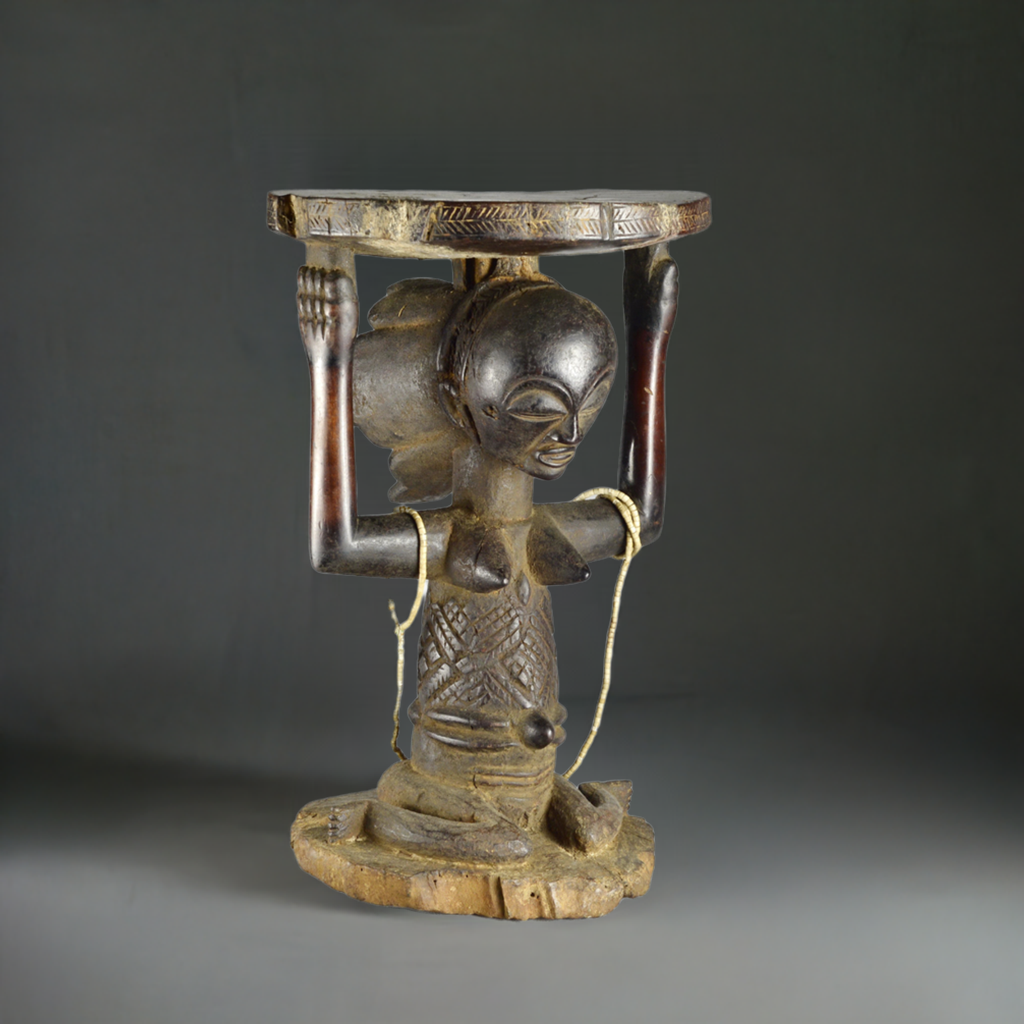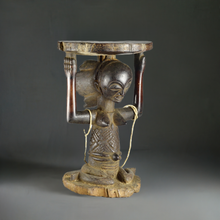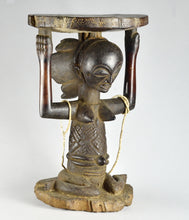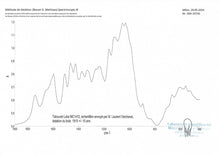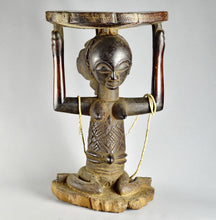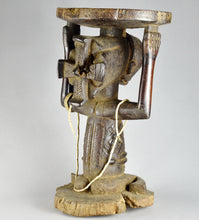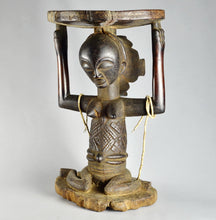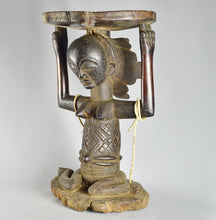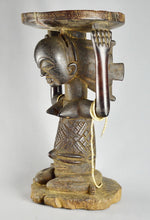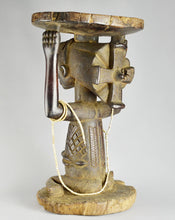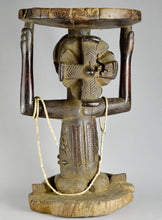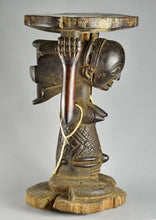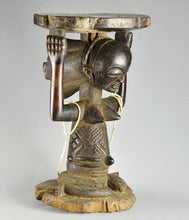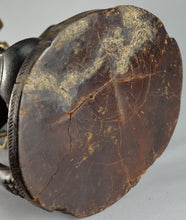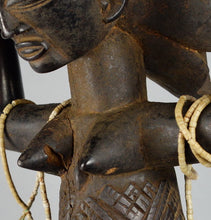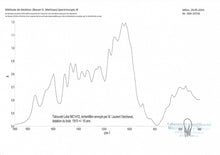MC1412 Luba Caryatid Stool - Exceptional and Antique, Over 100 Years Old, African Art
Regular price
€14,995.00
Sale
English description below
CONGO DRC
CONGO DRC
LUBA Superb and very old caryatid stool
Magnificent seat from the first half of the 20th century, probably first quarter, see the result of the spectroscopic test in the 2nd image, carried out by the Museo d'Arte e Scienza in Milan (estimated 1915)
Representative of the style of the Luvua workshops
Representative of the style of the Luvua workshops
The workshop identified by François Neyt as "The master of the court of the prince of Sopola" was created in the 19th century and illustrates the Luba breakthrough towards the east which influenced the sculptors of this region.
Also called Master of Warua by Suzanne Vogel and Ezio Bassani, he was later renamed by Bernard de Grunne "Master of Kunda" (Mains de Maîtres, 2001) then "Master of Luvua" (Luba Hemba Cariatides, 2017)
But these names mainly designate a geographical origin and a style.
Stools are for the Luba the most important symbols of political power. Their local name is Kipona or Kihona.
The Luba are a large people of eastern DRC. Their caryatid seats, cup carriers, chiefs' sticks, arrow holders, adzes and cult statues are very famous and among the most prized objects in African Art.
Provenance: Personal collection
Provenance: Personal collection
Features:
TYPE OF OBJECT: Seat, stool
ETHNIC GROUP: Luba, Baluba
COUNTRY OF ORIGIN: Congo DRC
MATERIAL: Wood
DIMENSIONS: Height 52 cm
STATUS: Bad - Bad
Lots of restoration (see photos)
But the seat remains solid
Lots of restoration (see photos)
But the seat remains solid
--------------------------
Find us on social networks
Subscribe to our mailing list
--------------------------
--------------------------
- Head in the Stars, Pierre Loos, Thomas Bayet and Sophie Caltaux, Bruneaf 2012, page 47, inv. 551)
- Luba Hemba Caryatids, for a history of the art of caryatid seats in the Luba and Lubaized styles, Bernard de Grunne, exhibition catalogue Parcours des Mondes, Paris, 2017
- Atlantes and Caryatids. Thrones of Black Africa, Galerie Ratton - Hourdé, 2004
- LUBA, at the sources of Zaire, François NEYT, Editions du Musée Dapper, 1993
- LUBA, Visions of Africa, Editions 5 Continents, Mary Nooter Roberts and Allen F. Roberts, 2006
- MEMORY, Luba Art and the Making of History, Mary Nooter Roberts, 1996
- MEMORY, Luba Art and the Making of History, Mary Nooter Roberts, 1996
- Tribal Art, Africa, Lempertz brussels, 2007
--------------------------
CONGO DRC
Exceptional LUBA Caryatid Stool
Superb seat from the first half of the 20th century, more probably first quarter, see in the the 2nd image the result of the spectroscopic test made by the Museo d'Arte e Scienza in Milano (estimated 1915)
The workshop identified by François Neyt as "The master of the court of the prince of Sopola was created in the 19th century and illustrates the Luba breakthrough to the east which influenced the sculptors of this region.
Also called Master of Warua by Suzanne Vogel and Ezio Bassani, he was then renamed by Bernard de Grunne "Master of Kunda" (Mains de Maîtres, 2001) then "Master of Luvua" (Luba Hemba Cariatides, 2017)
But those names mainly designate a geographical origin and a style
The workshop identified by François Neyt as "The master of the court of the prince of Sopola was created in the 19th century and illustrates the Luba breakthrough to the east which influenced the sculptors of this region.
Also called Master of Warua by Suzanne Vogel and Ezio Bassani, he was then renamed by Bernard de Grunne "Master of Kunda" (Mains de Maîtres, 2001) then "Master of Luvua" (Luba Hemba Cariatides, 2017)
But those names mainly designate a geographical origin and a style
Stools are for the Luba the most important symbols of political power
Their local name is Kipona or Kihona
The Luba are a great people in eastern DRC.
Their caryatid seats, their cup holders, chiefs' sticks, arrow holders, adzes and ancestral statues are very famous and among the most valued objects in African Art.
Origin: personal collection
Features:
TYPE OF OBJECT: Stool, seat, stool
ETHNICAL GROUP: Luba Baluba
ORIGIN: Congo Drc
MATERIAL: Wood
DIMENSIONS: About 16 1/4 inches high
CONDITION: Medium - Bad
A lot of restorations
But the stool is still very solid
(see pictures)
Copyright © 2023 Galerie de la Louve - All rights reserved
